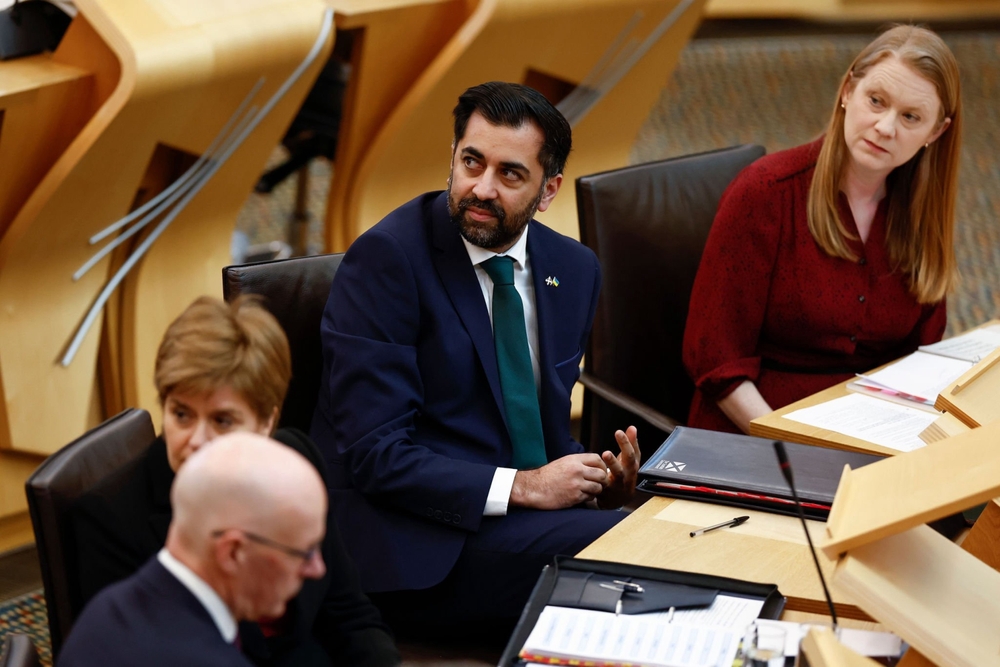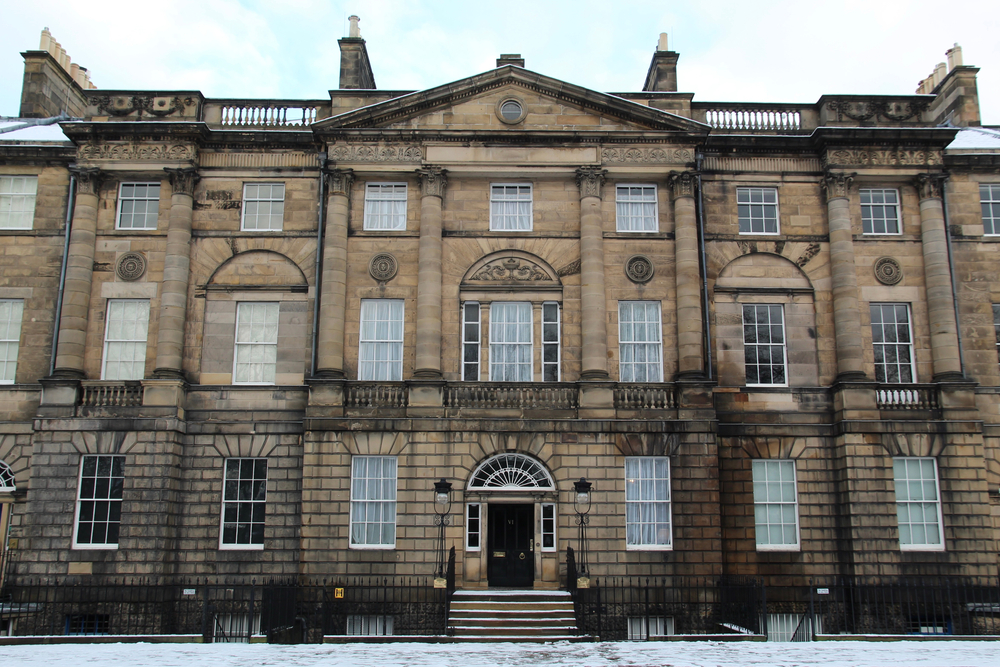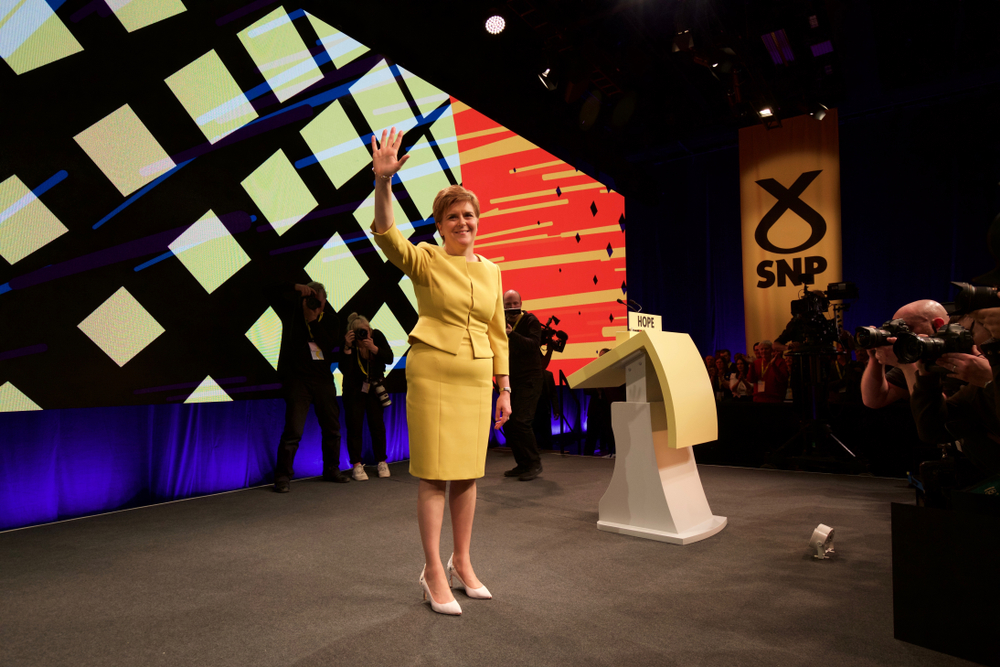On the 29th of March, 2023, Humza Yousaf was sworn in as First Minister of Scotland at the Court of Session in Edinburgh. His appointment followed his victory in the internal Scottish National Party (SNP) leadership election, at the end of a hard fought campaign after the resignation of his predecessor, Nicola Sturgeon. As the first Muslim and person of colour to lead the Scottish Government, his appointment is historically significant; as the candidate most wedded to Sturgeon’s ‘progressive’ case for Scottish independence, his defeat of the more conservative Kate Forbes is also politically significant in the short term.
Sturgeon’s resignation, on the 15th of February, came as a surprise to many in Scottish politics, given her eight-year track record as First Minister and proven success as an election winner. She took over immediately following SNP disappointment in the 2014 Scottish independence referendum. Nevertheless, she started her tenure by successfully uniting the remaining independence movement under the SNP banner to win all but three of Scotland’s 59 seats in the 2015 UK General Election. Her resignation, however, was not entirely unforeseeable: the months before her departure were marked by several controversies, with her public approval rating falling to a low of - 4 at the beginning of February. Although she argued her decision was due to fatigue after eight years in the top job, ‘not a reaction to short-term pressures’, these controversies doubtless played a part in her departure.
Some of those issues, in fact, became key fault lines in the contest to succeed her. The debate was influenced by divisions within the SNP and among the public over the Scottish Parliament’s Gender Recognition Reform (GRR) Bill. Passed as part of Sturgeon’s progressive policy platform, this legislation relaxed the rules for changing legal gender, introducing self-identification by removing the requirement for medical diagnosis and reducing the minimum age to 16. These reforms raised concerns in some quarters over interference with women’s rights under the Equality Act 2010, particularly access to single-sex spaces such as women’s refuges. Ultimately, the UK Government blocked the Bill using section 35 of the Scotland Act 1998 — the first use of this power in the history of Scottish devolution. For SNP politicians, as advocates of Scottish independence, this intervention would mark GRR as a key issue concerning Scotland’s status in the Union, leading to sharp divisions during the leadership campaign over strategies to achieve independence. It would also play an important part in broader debates around the candidates’ social policies.


The bookmakers’ favourite candidate and eventual winner, Humza Yousaf, was widely perceived as the ‘continuity candidate’. His pitch highlighted ‘progressive values’ as a central component of the drive towards Scottish independence, promising to challenge the UK Government in court to reinstate GRR (legal advice permitting). These stances earned him the support of many senior politicians within the SNP, attracting endorsements from 20 Members of Parliament (MPs) and 36 Members of the Scottish Parliament (MSPs) — including 20 Scottish Government ministers. Despite enjoying overwhelming support from parliamentarians, however, Yousaf’s main problem lay in his public image. He started the contest with an approval rating among the general population of + 1, compared to + 20 for leading rival Kate Forbes, who summarised public doubts over his record in a fiery television debate: ‘When you were transport minister the trains were never on time, when you were justice minister the police were strained to breaking point and now as health minister we’ve got record high waiting times’.
The Forbes campaign was focused on her perceived competence as Finance Secretary, starting in 2018 with her delivery of the Scottish Government’s annual budget to Parliament at mere hours notice following the unexpected resignation of her predecessor. She argued that using existing powers to increase economic growth would be the best way to convince sceptics of the case for Scottish independence. Core policies, however, were often overshadowed by headlines concerning her religious and social views. As well as sharing the concerns of some other politicians over GRR, Forbes made clear in response to questioning that, had she been an MSP at the time, she would also have voted against the 2014 law allowing same-sex marriage in Scotland. As a member of the Free Church of Scotland — a prominent denomination known for its strict doctrine — she also expressed opposition to abortion, among other things. Although Forbes emphasised her commitment to upholding existing legal rights, promising to ‘defend to the hilt everybody’s right in a pluralistic and tolerant society’, this was not enough to prevent damage to her campaign: several early backers in Parliament withdrew their endorsements, while media outlets questioned the future of her campaign.


Although final leadership candidate Ash Regan would receive only 11% in the final vote, she made an important contribution to debate during the campaign. Regan was the strongest opponent of GRR, having resigned her position as Community Safety Minister in protest at the Bill; she also had a radical strategy to achieve Scottish independence without a referendum, likened to a ‘unilateral declaration’, based on a pro-independence majority in an ordinary General Election. Her most significant contribution, however, was in questioning the transparency of SNP party governance: she was the first to demand the release of party membership figures before the election (showing a fall of more than 30% since December 2021), as well as leading calls for the resignation of Peter Murrell, Nicola Sturgeon’s husband, as Chief Executive amid questions about the integrity of the election process. Murrell was arrested in April in connection with a separate police inquiry into party finances, before being released without charge.
The final results of the contest shed an interesting light on the attitudes of SNP members, and the issues facing the new First Minister. First round voting preferences were as follows: Yousaf 48%; Forbes 40%; and Regan 11%. The second round, counting second preferences of Regan voters, saw Yousaf defeat Forbes by a 52% – 48% margin: a victory, but by all accounts a remarkably slim one. This close battle reflects a division within the SNP that became increasingly clear throughout the campaign. Yousaf’s commitment to GRR was welcomed by the party’s progressive block, who see such policies as essential components of the case for independence. Forbes, a fluent speaker of Scotland’s indigenous Gaelic language, appealed to more traditionalist members, emphasising Scottish culture, language and communitarian values.
These groups are not wholly incompatible: they share broadly left-leaning economic policy, notwithstanding their diverging views on social issues. Nevertheless, Yousaf will be faced with severe difficulties in reuniting his party; indeed, his early actions in government have focused on restoring party discipline rather than offering compromise. He has appointed allies to key positions in government, while offering Kate Forbes a perceived demotion to Rural Affairs, which she declined. Instead, her replacement as Finance Secretary, Shona Robison, was a key proponent of GRR under Sturgeon, placed firmly on the party’s progressive wing; her additional appointment as Deputy First Minister is a clear statement of intent at the very beginning of Yousaf’s tenure. Time will tell whether his strategy proves successful in overcoming the challenges faced by the SNP.
By Thomas Dillon








